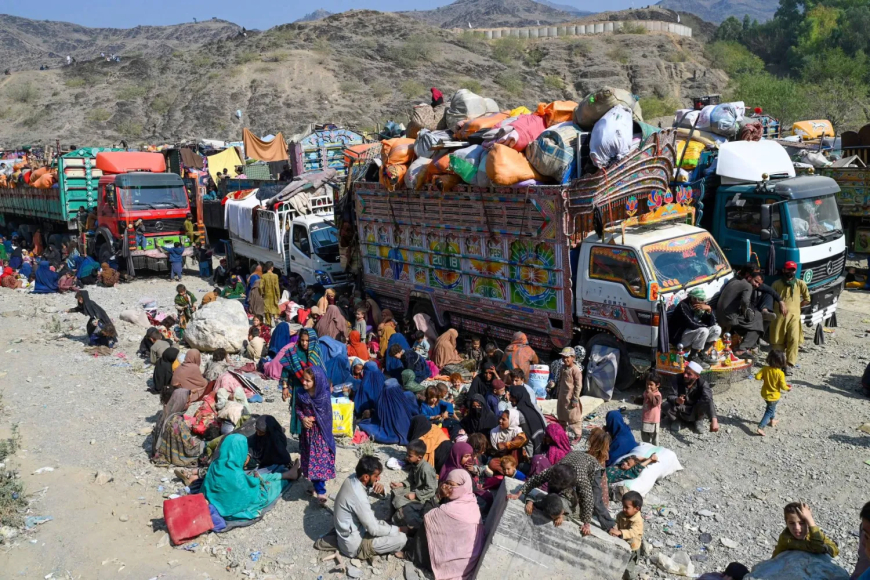Thousands of Afghans Leave Pakistan Under Pressure
Pakistan’s ongoing repatriation initiative has led to the departure of thousands of Afghan nationals, as authorities continue efforts to identify and expel undocumented foreigners from the country. The move is part of a nationwide policy aimed at addressing illegal immigration.

Pakistan’s ongoing repatriation initiative has led to the departure of thousands of Afghan nationals, as authorities continue efforts to identify and expel undocumented foreigners from the country. The move, part of a nationwide policy aimed at addressing illegal immigration, has seen intensified enforcement measures across key provinces, particularly Khyber Pakhtunkhwa, Balochistan, and Punjab. According to government sources, over 500,000 undocumented Afghans have been identified since the launch of the campaign, with many already returning voluntarily through official border crossings such as Torkham and Chaman. The authorities have clarified that the policy targets only individuals lacking legal documentation and is not aimed at refugees registered with the United Nations High Commissioner for Refugees (UNHCR) or holding Proof of Registration (PoR) cards. Interior Ministry officials have reiterated the need to uphold national security and regulatory frameworks, noting that the presence of undocumented individuals poses challenges in areas such as law enforcement, public service delivery, and counter-terrorism operations.

The repatriation has triggered a humanitarian response, with international aid agencies including the UNHCR and IOM (International Organization for Migration) working to assist returnees with food, shelter, transport, and basic medical care. Reports indicate that many Afghan families are left with minimal belongings, uncertain of what awaits them upon return, especially as Afghanistan continues to face economic instability and governance issues under Taliban rule. Criticism has come from both domestic and international human rights groups, who argue that forced or rushed repatriation could endanger vulnerable populations, including women, children, and individuals at risk of persecution. Calls have been made for Pakistan to extend repatriation deadlines and consider alternative legal pathways for long-term Afghan residents who have integrated into Pakistani society. On the diplomatic front, Islamabad and Kabul remain engaged in dialogue to manage the process and reduce tensions. Afghan officials have urged Pakistan to adopt a phased approach and offer humanitarian exceptions in certain cases. As the situation unfolds, the international community is watching closely, with Pakistan’s handling of the crisis likely to influence future regional cooperation on migration, refugee protection, and bilateral relations.

 Ateeq Ur Rehman
Ateeq Ur Rehman